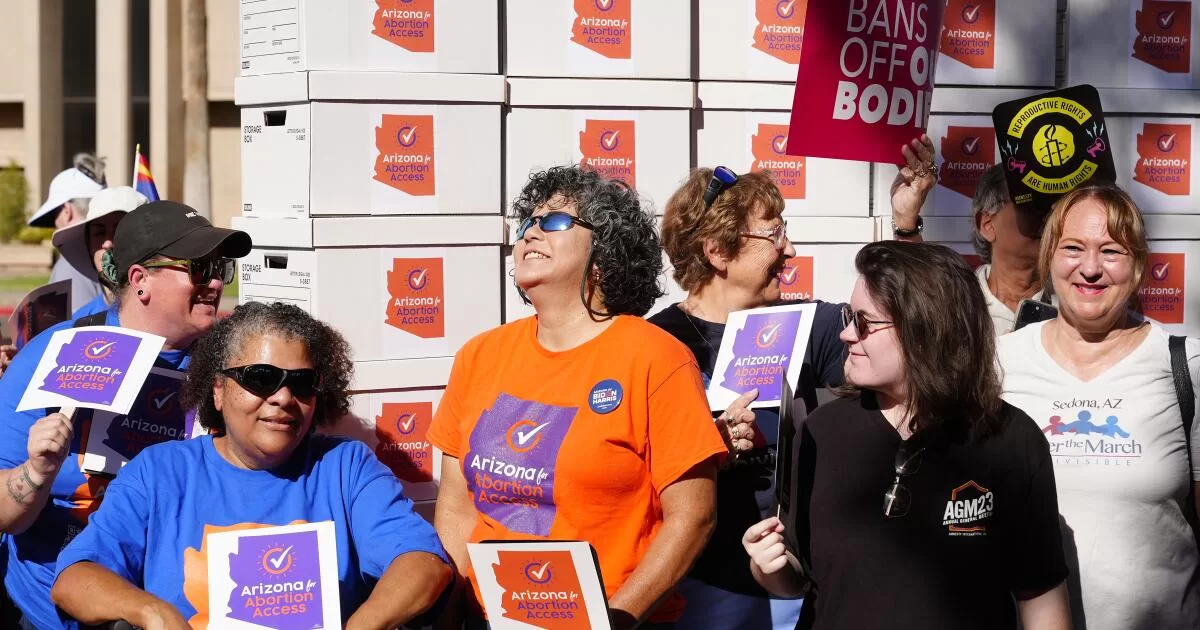Ever since the Supreme Court took away the constitutional right to abortion in 2022, the people have been taking it back state by state.
Before last week’s election, voters in six states had either enshrined abortion rights in their state constitutions or defeated ballot measures that would have restricted them.
On Tuesday, that number more than doubled. In seven of the 10 states where abortion rights measures were on the ballot, they prevailed. From the most liberal of those states (New York) to the most conservative (Missouri), and regardless of how they voted in the presidential race, voters asserted the right to control their own bodies. Even in Florida, where an abortion rights measure failed, it won a more decisive majority than Donald Trump. (More about that later.)
Ballot measures in New York, Maryland, Colorado and Montana enshrined abortion rights (and, in New York, other equal rights protections) in the constitutions of states where they are already substantially protected by law. Abortion is legal to the point of fetal viability in Montana, for example, but lawmakers there have repeatedly tried to restrict it.
These measures may be unnecessary in liberal states where abortion remains legal — and let’s hope they are. But every state that codifies abortion rights in its constitution reinforces them against the whims of elected officials. California voters passed a constitutional amendment bolstering the state’s already strong abortion protections in 2022.
The most important victories Tuesday were for measures in Arizona, which outlawed abortion after 15 weeks, and Missouri, where abortion was illegal with no exceptions for incest or rape. Missouri legislators have hardly missed an opportunity to attack abortion rights: One legislator floated a measure to make it illegal to help someone leave the state for an abortion.
Both of those states now have constitutionally guaranteed rights to abortion up to the point of viability. Although legal or legislative efforts will be necessary to lift their now unconstitutional bans, it’s astonishing progress for those states and the people who live in them.
These election results should send a powerful message to state and federal elected officials and the incoming Trump administration: Americans will not tolerate the trampling of their reproductive rights in blue, purple or red states. Federal officials should keep that in mind as conservative state attorneys general consider trying to block abortion medication from being provided by mail.
Three abortion rights measures did fail last week, all of them in states that could have desperately used constitutional amendments to ensure abortion access.
In Florida, which bans abortion beyond six weeks — a point when most women don’t even know they’re pregnant — Amendment 4 would have constitutionally guaranteed a right to an abortion up to the point of fetal viability, which is roughly 24 weeks. The initiative earned a healthy majority of 57.2% but fell 3 points short of the state’s undemocratic 60% threshold for approval of constitutional amendments. Trump carried the state with a smaller majority, 56.1%.
A failed measure in South Dakota, where abortion is banned, would have allowed the procedure up to 12 weeks, which is considered restrictive in other states. Major reproductive rights groups such as the regional Planned Parenthood organization did not believe the measure would adequately restore abortion rights and refused to support it.
And in Nebraska, where abortion is banned after 12 weeks with some exceptions, the presence of two measures on the ballot made for some confusion. The one that failed, Initiative 439, would have guaranteed a right to abortion up to viability and was supported by advocates of abortion access. The one that passed, Initiative 434, bans most abortions after 12 weeks. Under this measure, abortion could remain legal up to 12 weeks, but the Legislature has leeway to further restrict abortion rights, up to a complete ban.
Advocates have more work to do to convince voters in states with abortion bans and restrictions that there is an electoral path to restore reproductive rights. “Every state that has a citizens’ initiative constitutional process and restrictions on abortion is a place where we will be looking,” said Kelly Hall, the executive director of the Fairness Project, which worked on the ballot measures in Missouri and elsewhere this election season.
In states that don’t allow citizens’ initiatives, progress will be more challenging. But people in all kinds of states, liberal and conservative, have shown that they want to protect their right to control their own bodies.
